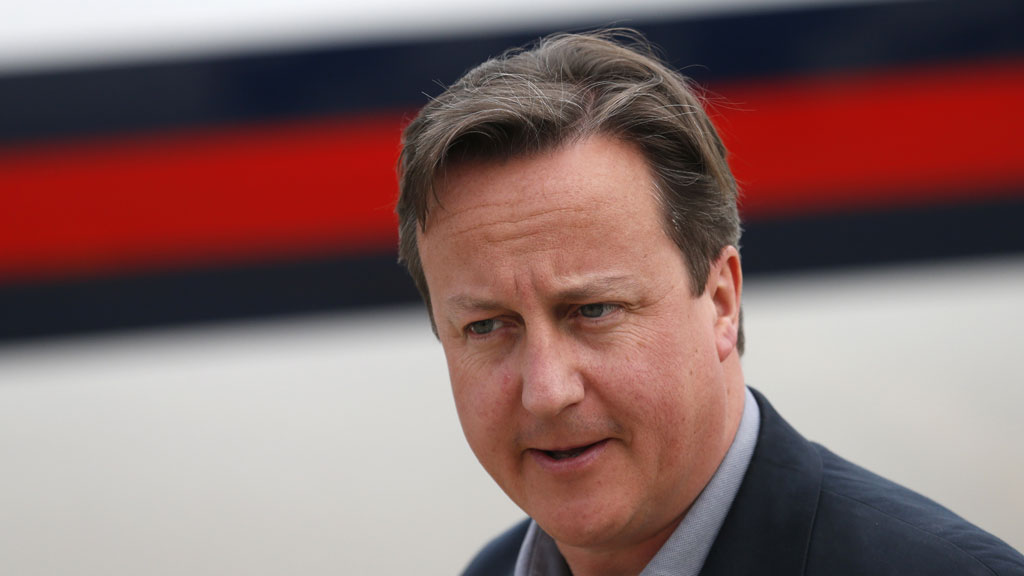Syria war dominates G8 agenda
The leaders of the G8 nations gather to attend the summit in Northern Ireland on Monday, with Syria’s crisis dominating the agenda.

Prime Minister David Cameron and Russian leader Vladimir Putin will each hold separate talks with President Barack Obama, who has indicated he will arm the rebels – a move much opposed by Putin.
Mr Cameron acknowledged there was “a big difference” between the positions of Russia and the west on Syria, but stressed there was also common ground between the world’s richest powers.
Mr Obama is expected to try and persuade Mr Putin to get Syrian leader Bashir al-Assad to the negotiating table. However, Putin has warned that America risks “stoking” the conflict by arming rebels, after the US said there was “conclusive evidence” that the Assad regime had used chemical weapons.
Herman van Rompuy, president of the European Council, said the US claims over chemical weapons evidence makes a UN mission to verify those claims “essential”.
“The US assessment on the use of chemical weapons makes even more urgent our repeated calls for an agreement to immediately deploy a UN verification mission to investigate these allegations on the ground,” he said.
“At the same time, these developments can only reinforce the importance of a political solution and should accelerate the efforts of the international community to find a definitive political solution to the conflict and I trust that this G8 summit will allow us to advance substantially in this direction.”
Before the meeting, Barack Obama gave a rousing address to some 2,000 people – mostly young students – at Belfast’s Waterfront Hall in what he said was “a different city”.
“There is still much work to do,” he said.
“You need to get this right. You set the example for those who are seeking peace to end conflicts of their own. You are their blueprint to follow. You are the proof of what is possible. Hope is contagious. They are watching to see what you do next.”
‘Still many miles to go’
“There are walls that still stand, there are still many miles to go.”
Documents uncovered by the NSA whistleblower Edward Snowden claim that delegates were tricked into using internet cafes specifically created by British intelligence to read their emails.
The government has not yet commented on the claims.
Campaigners, wearing face masks depicting the world leaders, moored a boat closed to Lough Erne, the venue for the summit.
The protesters, from the Enough Food for Everyone IF campaign, call for leaders to eliminate the causes of hunger.
EU/US trade deal
Mr Cameron said all G-8 members must cooperate more to restrict companies’ ability to exploit foreign tax shelters, including Britain’s own crown dependencies and far-flung overseas territories, as a way to boost government revenue and economic growth.
“These issues corrode public trust and undermine a competitive low tax economy which can only be sustained if people actually pay the taxes they owe,” he said.
The whole point of this meeting in Lough Erne is to fire up our economies and drive growth and prosperity around the world. David Cameron
Mr Cameron also convened a meeting on reaching agreement on a long-debated European Union-US trade pact. The talks, launched on Monday, could add £100bn to the EU economy, Mr Cameron said.
“This is a once in a generation prize and we are determined to seize it,” Mr Cameron said.
The participants included President Obama, French President Francois Hollande, German Chancellor Angela Merkel, new Italian Prime Minister Enrico Letta, EU Commission chief Jose Manuel Barroso and European Council President Herman Van Rompuy.
A trade pact would lower tariffs and reduce regulations that serve as barriers to buying or selling goods and services on both sides of the Atlantic. A deal is seen as important for spurring Europe’s stagnant economy.
“The whole point of this meeting in Lough Erne is to fire up our economies and drive growth and prosperity around the world, to do things that make a real difference to people’s lives,” said the prime minister after the first round of talks.
“There is no more powerful way to do that than by boosting trade and there is no better way than by launching these negotiations on a landmark deal between the EU and the USA, a deal that could add as much as £100bn to the EU economy, £80bn to the US economy and as much as £85bn to the rest of the world. They mean extra jobs, more choice and lower prices in our shops.”
Mr Obama promised to make the trade talks, which start next month in Washington and are expected to last up to two years, a priority of his remaining term in office.
“America and Europe have done extraordinary things together before and I believe we can forge an economic alliance as strong as our diplomatic and security alliances, which of course have been the most powerful in history,” he said.
-
Latest news
-
How drug gangs operate in Europe’s most dangerous city11m

-
Debate: Should there be an election in Scotland?6m

-
How Yousaf resignation could spell end of SNP dominance in Scotland3m

-
Rwanda effect on asylum seeker numbers ‘doubtful’, says Irish MEP4m

-
How is the UK’s Rwanda asylum plan impacting Ireland?8m

-




